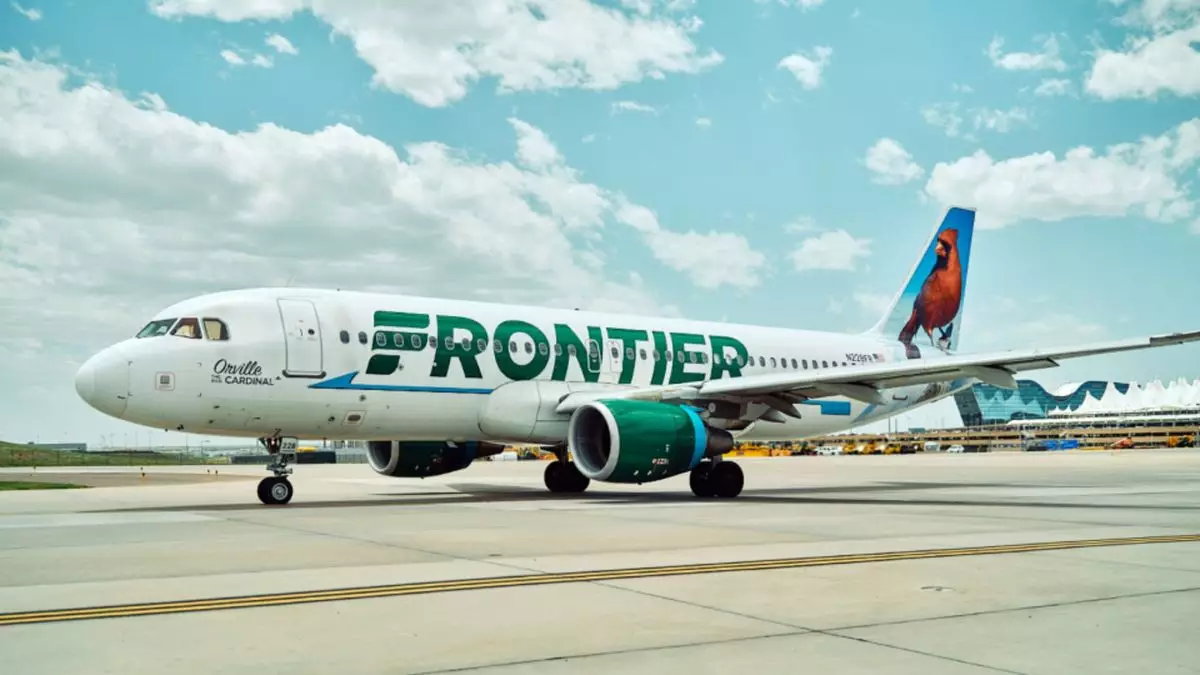Frontier Airlines, long known for its aggressive approach to ancillary product pricing and cost-saving measures, took a bold step towards reinventing its merchandising strategy on May 17th. The carrier moved away from its unbundled pricing model, which set it apart from other U.S. airlines, in favor of a more traditional approach. This shift marked a significant departure from the path that Frontier had been known for in the industry.
Under the revised merchandising strategy, Frontier now offers travelers the option to choose from a range of bundled fares. These bundles include different perks based on the type of fare chosen, such as seat assignments, carry-on bags, changeability, and more. By opting for one of the rebranded bundled fares, passengers can enjoy a more streamlined and cost-effective experience compared to the previous unbundled pricing model.
The new bundles offered by Frontier, such as Economy, Premium, and Business, come at a lower cost than the carrier’s previous fare bundles. These bundled fares are also more affordable than the existing ancillary charges for passengers who opt for the Basic fare. Moreover, the bundles are presented to customers at the beginning of the booking process, making it easier for travelers to compare options and make informed decisions.
Frontier’s CEO, Barry Biffle, expressed a commitment to providing a wider range of flyers with a more appealing travel experience. By simplifying the pricing structure and offering more value through bundled fares, Frontier aims to cater to customers with varying needs and preferences. The airline’s decision to shift away from the a la carte model reflects a strategic move to attract more passengers and boost ancillary revenue.
Industry analyst Brett Snyder commended Frontier’s new merchandising approach, predicting that it would attract additional customers and help fill seats. However, Snyder emphasized the importance of pricing strategies in determining the airline’s overall profitability. He also highlighted the need for Frontier to focus on operational integrity and improve its reputation, particularly in light of past performance issues.
As Frontier continues to navigate the post-pandemic landscape and compete with full-service carriers like Delta and United, the airline faces both opportunities and challenges. Executives at Frontier believe that the revised merchandising strategy will position the airline as a leader in low fares while enhancing the customer experience. Meanwhile, rival airlines like Spirit are also considering changes to their sales models, signaling a potential shift in the competitive landscape.
Frontier Airlines’ decision to overhaul its ancillary pricing and merchandising strategy reflects a strategic effort to adapt to evolving consumer preferences and industry dynamics. By introducing bundled fares and simplifying the booking process, Frontier aims to attract more customers and increase ancillary revenue. While the airline’s new approach may help improve its market position and customer satisfaction, the ultimate success of this strategy will depend on effective pricing, operational performance, and reputation management.


Leave a Reply